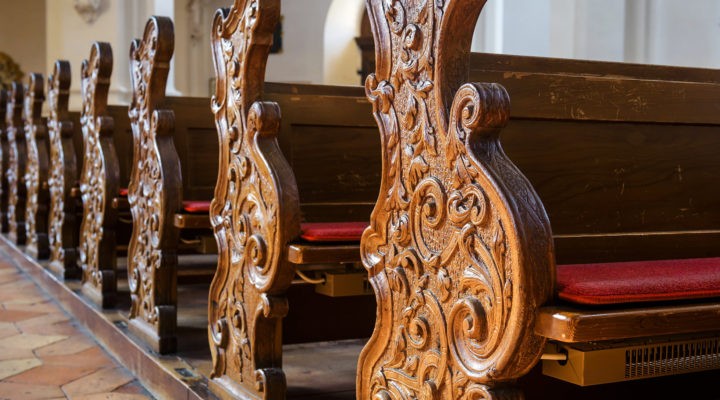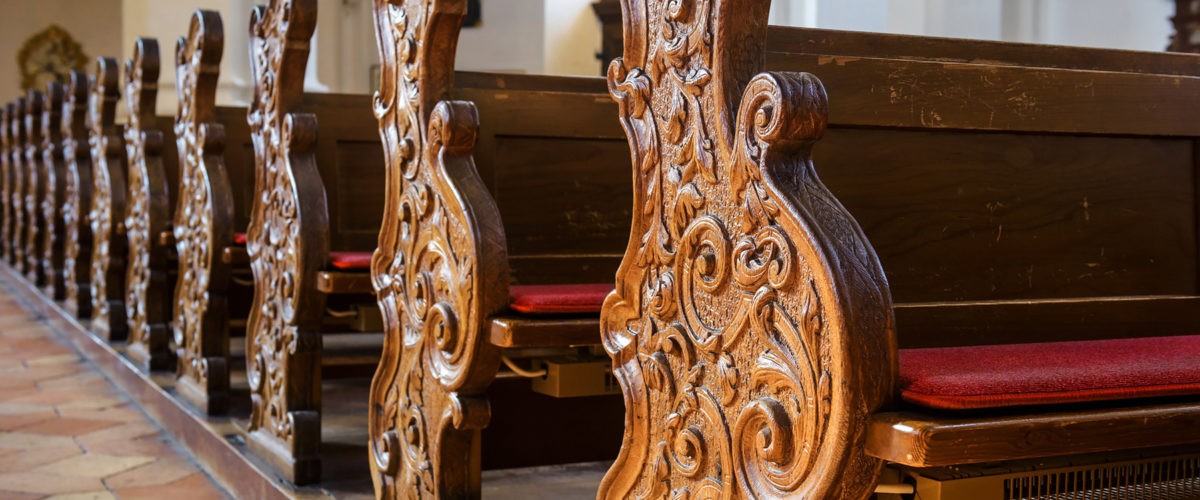In a recent Atlantic essay titled “The True Cost of the Churchgoing Bust,” columnist Derek Thompson writes that “more Americans today have ‘converted’ out of religion than have converted to all forms of Christianity, Judaism and Islam combined. No faith’s evangelism has been as successful in this century as religious skepticism.”
The article came across my Facebook page through the good graces of my friend Bill Wilson who made it available “for free” for six days. I am deeply grateful. Derek Thompson begins by citing the recent PRRI survey documenting the distancing from religion now taking place throughout American society. I referenced the same article in my last essay for BNG. It is a sobering study, as is the term “churchgoing bust.”

Bill Leonard
A self-acknowledged agnostic of Jewish heritage, Thompson notes he had long dismissed religion as “beset by scandal and entangled in noxious politics.” More recently, however, he recognizes that “maybe religion, for all of its faults, works a bit like a retaining wall to hold back the destabilizing pressure of American hyper-individualism, which threatens to swell and spill over in its absence.”
‘Secularization is old news’
When addressing the causes of the decline, Thompson begins with a statement of considerable insight: “Secularization is old news.” It has been present with us for centuries, evidenced in the church’s opposition to Galileo’s 17th century stargazing and Frederick Nietzsche’s late 19th century declaration that “God is dead.”
He adds: “But even as secularism surged throughout the developed world in the 20th century, America’s religiosity remained exceptional.”
Then something happened, Thompson says: “Suddenly, in the 1990s, the ranks of nonbelievers surged. An estimated 40 million people — one in eight Americans — stopped going to church in the past 25 years, making it the ‘largest concentrated change in church attendance in American history,’” quoting the religion writer Jake Meador in a 2023 Atlantic article.
“Before we start blaming secularism for the churchgoing bust, we religionists might ask ourselves how our actions or inactions contributed to such declines.”
Before we start blaming secularism for the churchgoing bust, we religionists might ask ourselves how our actions or inactions contributed to such declines.
Thompson illustrates the impact of politicization by suggesting, “In the 1970s and ’80s, the Religious Right became a formidable fundraising machine for the Republican Party. As the GOP consolidated its advantage among conservative Christians, religion seemed less appealing to liberal young people, especially if they or their parents already had a tenuous relationship with the church.”
He notes that during the 1980s, “only one in 10 liberals said they didn’t belong to any religion; 30 years later, that figure was about four in 10. Meanwhile, the decline of marriage, especially among low-income Americans, accompanied their move away from the church.”
In 2021, membership in faith communities dropped below 50%, the lowest figure since such records have been kept.
Thompson gives particular attention to two demographic groups, young people and the unmarried, as illustrated in recent surveys. One indicates that “there is no statistical record of any period in U.S. history where young people were less likely to attend religious services, and also no period when young people have spent more time on their own.”
Another such study suggests that beginning as early as the 1970s, church attendance by white working-class males without college degrees had declined more significantly than among male college graduates. Declines among adult males and young people present immediate challenges to faith communities.
Sources of community
Thompson seems less concerned about the specific teachings of the various faiths than that they are sources of community and face-to-face encounter in a society where a sense of aloneness is rampant. A relationship with organized religion, he believes, provides benefits that include a spiritual link to the divine, “a historical narrative of identity,” a set of rituals that help organize our lives, and a connection to a community of families and individuals.
For Thompson, “religious ritual often requires that we make contact with the sacred in the presence of other people, whether in a church, mosque, synagogue or over a dinner table prayer. In other words, the religious ritual is typically embodied, synchronous (communal gathering), deep and collective.”
“It took decades for Americans to lose religion. It might take decades to understand the entirety of what we lost.”
He concludes: “Making friends as an adult can be hard; it’s especially hard without a scheduled weekly reunion of congregants. Finding meaning in the world is hard too; it’s especially difficult if the oldest systems of meaning-making hold less and less appeal. It took decades for Americans to lose religion. It might take decades to understand the entirety of what we lost.”
Thompson’s commentary on our times and cultural dilemmas is not a call to religious navel gazing, but a plea for the survival of faith communities that offer safe harbor amid the turmoil of isolation, loneliness and enduring social and political conflict. For Christian faith communities, that kind of safety is grounded in the teachings of Jesus, although determining the meaning and application of those teachings is the source of considerable debate, even conflict, inside American Christianity.
Nonetheless, his observations seem to confirm continuing studies that document the departure of large numbers of Americans from serious engagement with religious institutions. Thompson believes that is not only a loss to those communities, but also a detriment to a society in desperate need of communal presence and relationships.
Five reflections
His assessment of the religio-social situation prompts the following reflections for American churches:
First, the realities of religious decline and disengagement require responses for all congregations, even those that are relatively stable in membership, energy and commitment. This is the immediate if not the long-term future. Churches that ignore that reality do so at their own peril.
Second, churches across the theological spectrum would do well to take stock as to the ways in which they nurture community for longtime members and newcomers alike. If “aloneness” is as epidemic as Derek Thompson suggests, what old/new responses might be in order?
“Amid these numerical realities we are compelled to ask, ‘And where is the Spirit?’”
Third, if ritual is an important source of stability and community, then churches should surely cultivate the intentional and enduring rites of baptism and Holy Communion, congregational meals, passing of the peace, (footwashing?), and localized enacted acts that reflect “the word of God without words.” Ministers might also be intentional about sermonic responses by which the spoken word accompanies the enacted word: “When did our pastor last preach on baptism?”
Fourth, for congregations whose history involves both nurture and conversion into God’s grace, a similar intentionality is necessary involving clarity as to the meaning and process of “becoming a follower of Jesus,” entering in (justification) and going on in grace (sanctification), surely the church’s most important “narrative of identity” into the body of Christ.
Finally, amid these numerical realities we are compelled to ask, “And where is the Spirit?” Fifty years ago, Bud Williams and I ask such a question of the last three sisters at Shaker Village, Canterbury, N.H. Bud was a deacon at First Community Church, Southboro, Mass., where I was pastor during my doctoral studies at Boston University. We visited Canterbury on Oct. 7, 1974; the sisters invited us for tea. I bought a Shaker book and asked the three to sign it. When they did, one of the sisters remarked: “When we’re dead this may be worth a lot of money.” I have it still.
Bud, ever direct, inquired: “How do you feel about the disappearance of your order?” Eldress Bertha Lindsay replied: “We regret it deeply, but we know the Spirit will reveal itself again, somewhere, somehow. They may not call themselves Shakers, but they will live a kingdom life.”
Should that question someday be asked of the last Baptist, I hope she’ll trust the Spirit like that, too.
Bill Leonard is founding dean and the James and Marilyn Dunn professor of Baptist studies and church history emeritus at Wake Forest University School of Divinity in Winston-Salem, N.C. He is the author or editor of 25 books. A native Texan, he lives in Winston-Salem with his wife, Candyce, and their daughter, Stephanie.
Related articles:
‘Broken Churches, Broken Nation?’ A crisis of our times
Ryan Burge explains ‘casual dechurching’
America’s changing culture means there’s not much of a rush to the cafeteria for Sunday lunch | Analysis by Mark Wingfield


